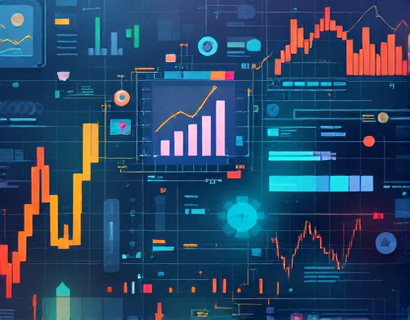Unlocking Economic Dynamics: Mastering Market Complexities with Advanced Insights
In the ever-evolving landscape of global economics, understanding market dynamics is crucial for both economic enthusiasts and business professionals. The complexities of modern economic theories can often seem daunting, yet they hold the key to informed decision-making and strategic advantage. This article aims to illuminate these intricacies through a comprehensive exploration of advanced insights and whitepapers that empower individuals to navigate the economic landscape effectively.
The Importance of Economic Theories
Economic theories serve as the foundation for understanding how markets operate. They provide frameworks that help explain the behavior of consumers, businesses, and governments. By mastering these theories, individuals can gain a deeper understanding of market complexities, enabling them to make informed decisions that can lead to success in their respective fields.
Key Economic Theories to Explore
- Supply and Demand: This fundamental theory explains how the price and quantity of goods are determined in a market. Understanding the relationship between supply and demand is essential for predicting market trends.
- Keynesian Economics: This theory emphasizes the role of government intervention in stabilizing the economy. It is particularly relevant during economic downturns when consumer demand is low.
- Monetarism: Focused on the role of government in controlling the amount of money in circulation, monetarism highlights the importance of monetary policy in managing economic stability.
- Behavioral Economics: This emerging field combines psychology and economics to understand how individuals make decisions. It challenges traditional economic assumptions and provides insights into consumer behavior.
Advanced Insights into Market Dynamics
To truly master market complexities, one must delve into advanced insights that go beyond basic economic theories. These insights often come from rigorous research and analysis, typically presented in the form of whitepapers. Whitepapers are authoritative reports that provide in-depth information on specific topics, making them invaluable resources for economic enthusiasts and professionals alike.
The Role of Whitepapers in Economic Understanding
Whitepapers serve several purposes in the realm of economics. They provide detailed analyses of market trends, explore the implications of economic policies, and offer predictions based on empirical data. By engaging with these documents, individuals can enhance their understanding of economic dynamics and apply this knowledge to real-world scenarios.
Types of Whitepapers to Consider
- Market Analysis Reports: These whitepapers provide insights into specific industries, examining trends, challenges, and opportunities. They are essential for businesses looking to enter new markets or expand their operations.
- Policy Impact Studies: These documents analyze the effects of government policies on the economy. Understanding these impacts can help businesses and individuals anticipate changes in the market environment.
- Economic Forecasts: Whitepapers that focus on economic forecasting provide predictions about future market conditions. These forecasts are crucial for strategic planning and risk management.
- Case Studies: Detailed examinations of specific economic events or phenomena can offer valuable lessons. Case studies highlight successful strategies and common pitfalls, providing practical insights for decision-makers.
Empowering Economic Enthusiasts and Professionals
For economic enthusiasts and business professionals, the ability to interpret and apply advanced insights is essential. By leveraging the knowledge gained from whitepapers and expert analyses, individuals can position themselves for success in a competitive landscape.
Strategies for Effective Learning
- Engage with Diverse Sources: To gain a well-rounded understanding of economic dynamics, it is important to explore a variety of sources. This includes academic journals, industry reports, and expert blogs.
- Participate in Discussions: Engaging in discussions with peers and experts can deepen your understanding of complex topics. Consider joining forums or attending conferences to exchange ideas and insights.
- Apply Knowledge Practically: Theoretical knowledge is most valuable when applied to real-world situations. Seek opportunities to implement what you have learned in your professional endeavors.
- Stay Updated: The economic landscape is constantly changing. Regularly updating your knowledge through continuous learning and staying informed about current events is crucial.
Leveraging Economic Theories for Strategic Advantage
Understanding economic theories and market dynamics is not just an academic exercise; it is a practical necessity for achieving strategic advantage. Businesses that can anticipate market changes and adapt their strategies accordingly are more likely to thrive in a competitive environment.
Case Examples of Strategic Application
Numerous businesses have successfully leveraged economic theories to gain a competitive edge. For instance, companies that utilize supply and demand analysis can optimize their pricing strategies, ensuring they remain competitive while maximizing profits. Similarly, businesses that understand the principles of behavioral economics can tailor their marketing strategies to better resonate with consumers, ultimately driving sales.
Conclusion
Unlocking the intricacies of modern economic theories is essential for anyone looking to navigate the complexities of the market effectively. By engaging with advanced insights and whitepapers, economic enthusiasts and business professionals can empower themselves with the knowledge needed to make informed decisions. As the economic landscape continues to evolve, those who master these dynamics will be well-positioned to seize opportunities and achieve success.










































